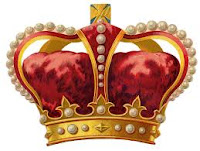The epic drama of betrayal, rebellion,
and power-seeking continues. Jared and Akish take over the kingdom of Omer through
their “secret combinations” – BUT the Lord is merciful to Omer and warns him to
escape before he can be murdered.
You can continue to read the story for yourself, but here are a few “morales” of the story I can see:
You can continue to read the story for yourself, but here are a few “morales” of the story I can see:
- If you do a deal with the devil, expect him to turn around a do a deal with someone else against you (vs. 4-5)
- Eventually people who choose evil will get a taste of their own medicine (vs. 5-7, thinking of the daughter of Jared, who was the one who suggested the secret combinations in the first place to her father so he could gain power. Now her father has been murdered by her husband, and her husband has killed her son as well. I doubt she realized the mess she was getting herself into.)
- Wicked nations often destroy themselves (v. 12)
- The Lord preserves the nations that love and follow Him (vs. 13-22, 35)
- It’s easy to judge these people for “flip flopping” back and forth between good and evil so quickly. But really it’s not that quickly, it’s just a very condensed version of the story that makes it feel quick. Every person is at risk of flip-flopping within their own life time. Are you changing for the better or the worse?
It makes my head spin to read this
chapter because it covers so many generations of rulers and people and is
such a rollercoaster of righteousness and wickedness, prosperity and trouble.
I guess one big message is that people can change – for good or for bad. I’m
actually impressed at how often in this chapter the king switches from a bad
king to a good king, because I feel like in the Book of Mormon it’s a lot more
common for the people to be happy and righteous and prosperous and then a bad
king comes in and spoils everything.
Another clear lesson in this chapter
is that when people are righteous, and when people treat each other well (and
rulers treat their people well), they prosper.
28 And never could be a people more blessed than were they, and more prospered by the hand of the Lord. And they were in a land that was choice above all lands, for the Lord had spoken it.
I also noticed, it isn’t always the
king’s fault if the people are righteous or wicked. At the end of this chapter,
the King is good and does everything he can to stop the spread of the “old
plans” of darkness but he “did not prevail against them.” I'm not sure if I find that discouraging or encouraging…?
What other lessons or highlights stand out to you?
Things are headed downhill fast. God sends prophets to give serious
warnings to these people, that they need to straighten up or their days are
numbered. And every time, the people reject (and even kill) the prophets:
5 And it came to pass that the brother of Shiblom caused that all the prophets who prophesied of the destruction of the people should be put to death; 6 … for they had testified that a great curse should come upon the land, and also upon the people, and that there should be a great destruction among them, such an one as never had been upon the face of the earth, and their bones should become as heaps of earth upon the face of the land except they should repent of their wickedness.
In this chapter, I count three different rounds or generations of prophets that the Lord sends to try to warn the people. To God’s credit, He doesn’t send destructions or punishment without lots and lots of warning and pleading for people to change and choose a better path.
Spoiler alert… the prophets have been warning the people of destruction so great that “their bones should become as heaps of earth
upon the face of the land.” Remember that we are reading a record (the Book of
Ether) that was found by Limhi’s people among the bones and ruins of an unknown
people. Can you guess if the people repent or not?



No comments:
Post a Comment